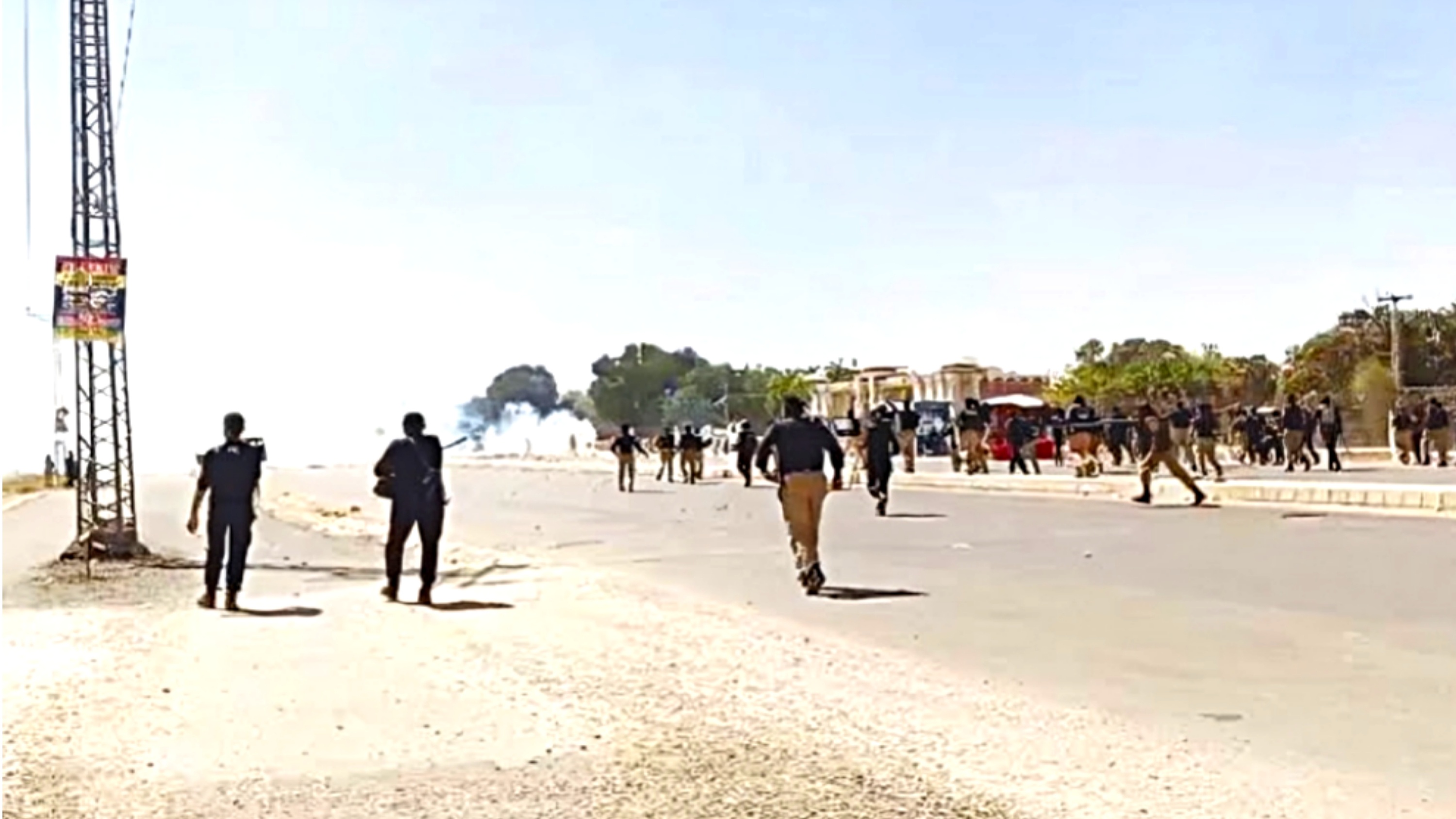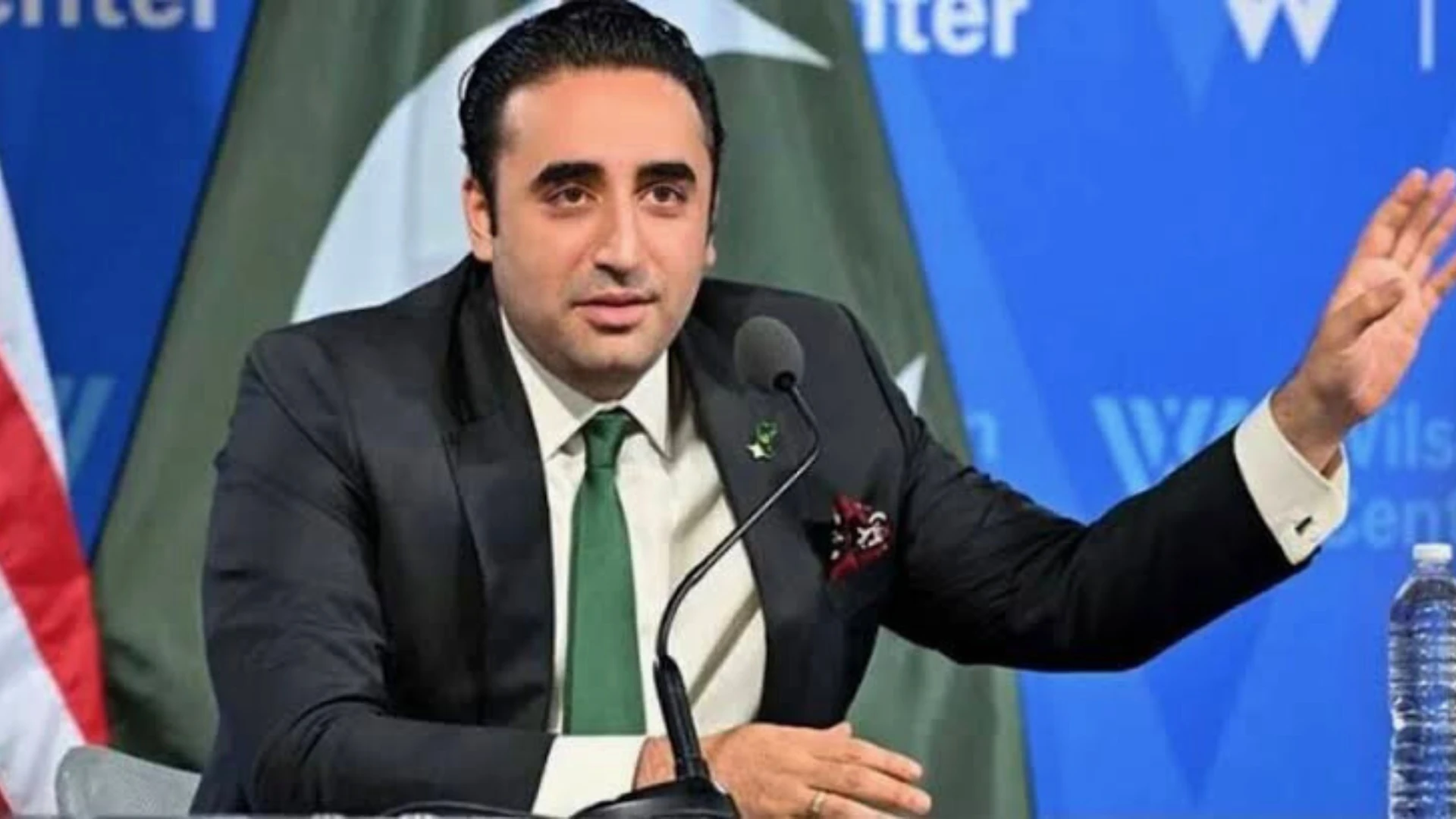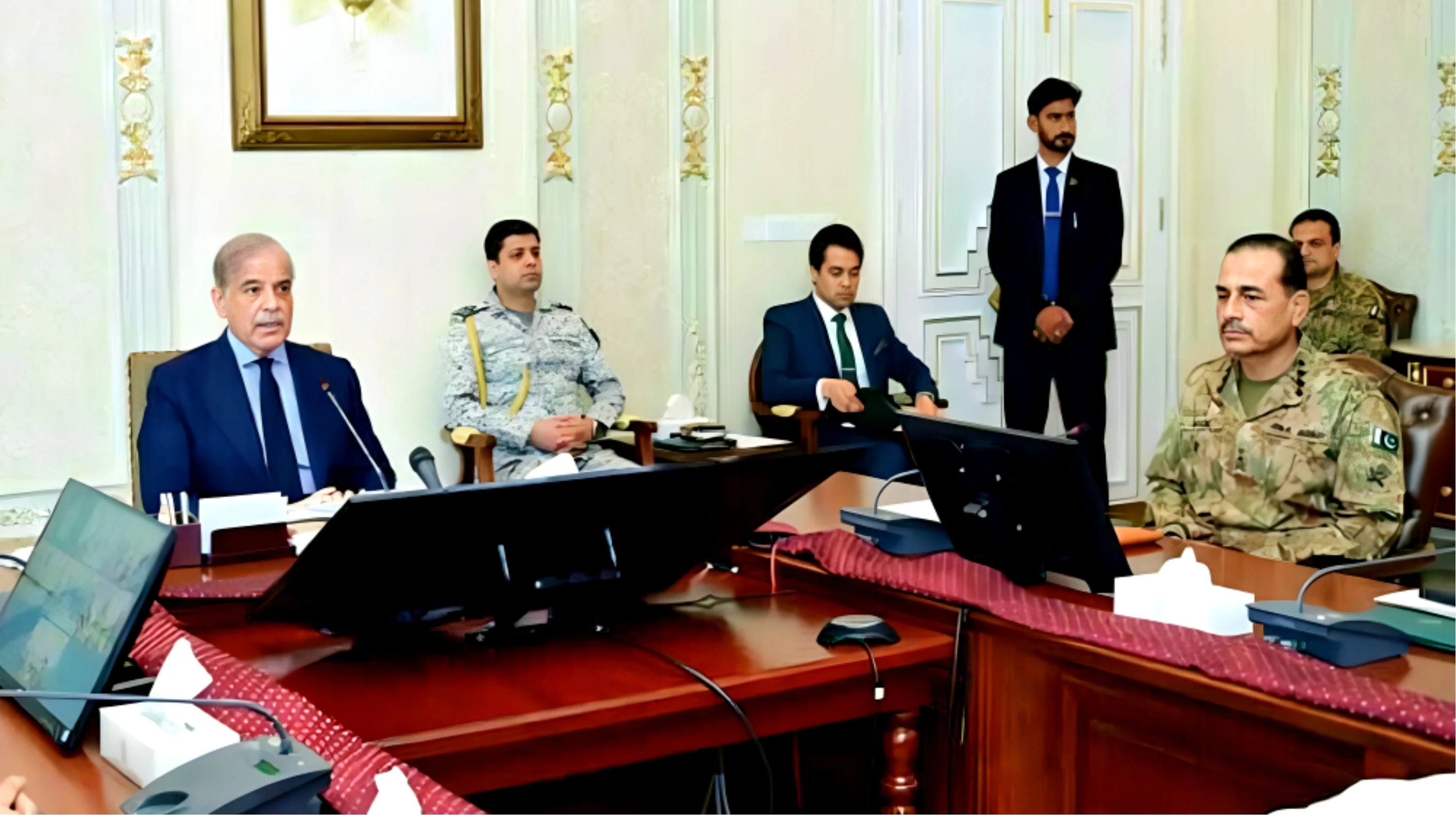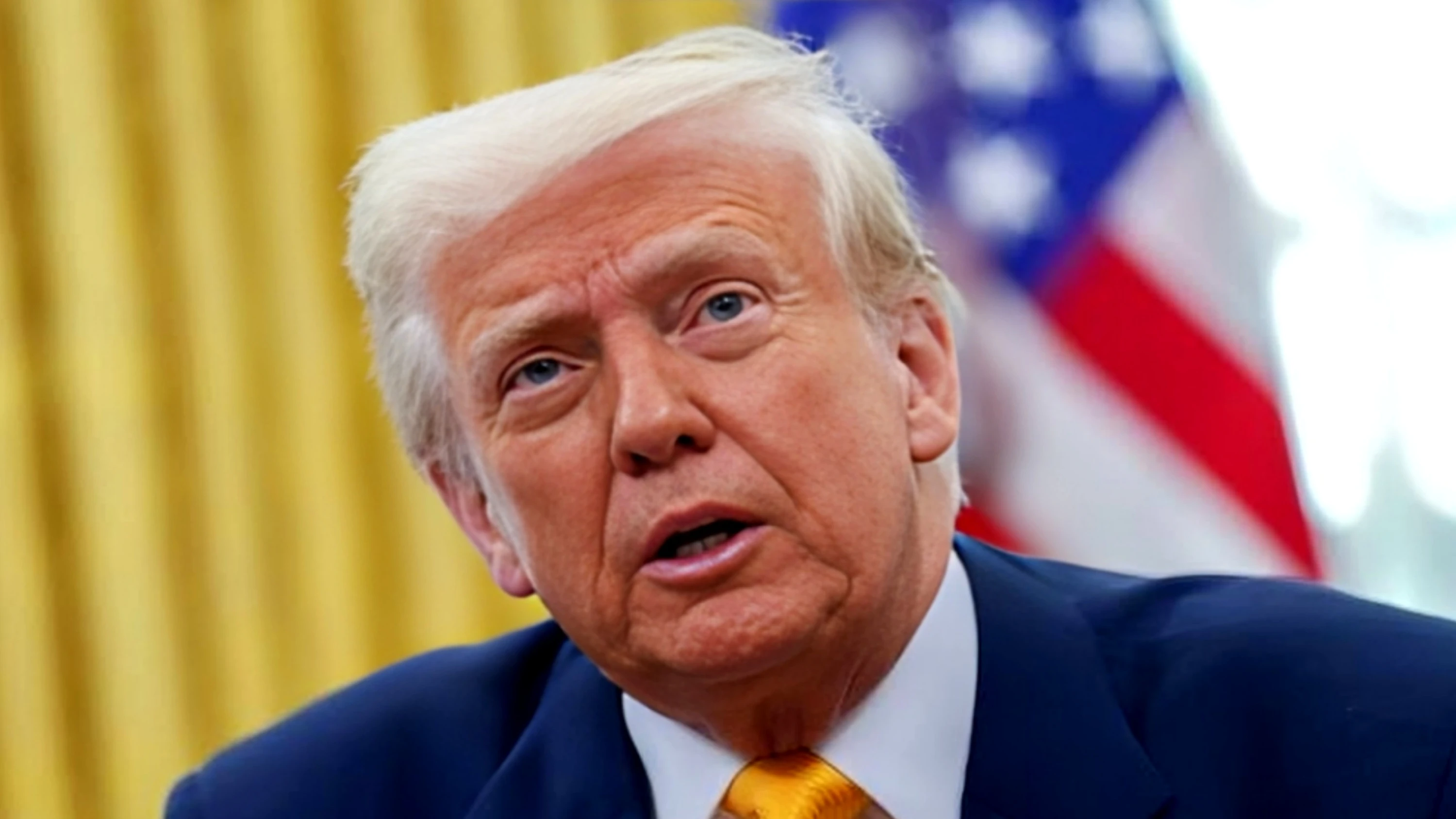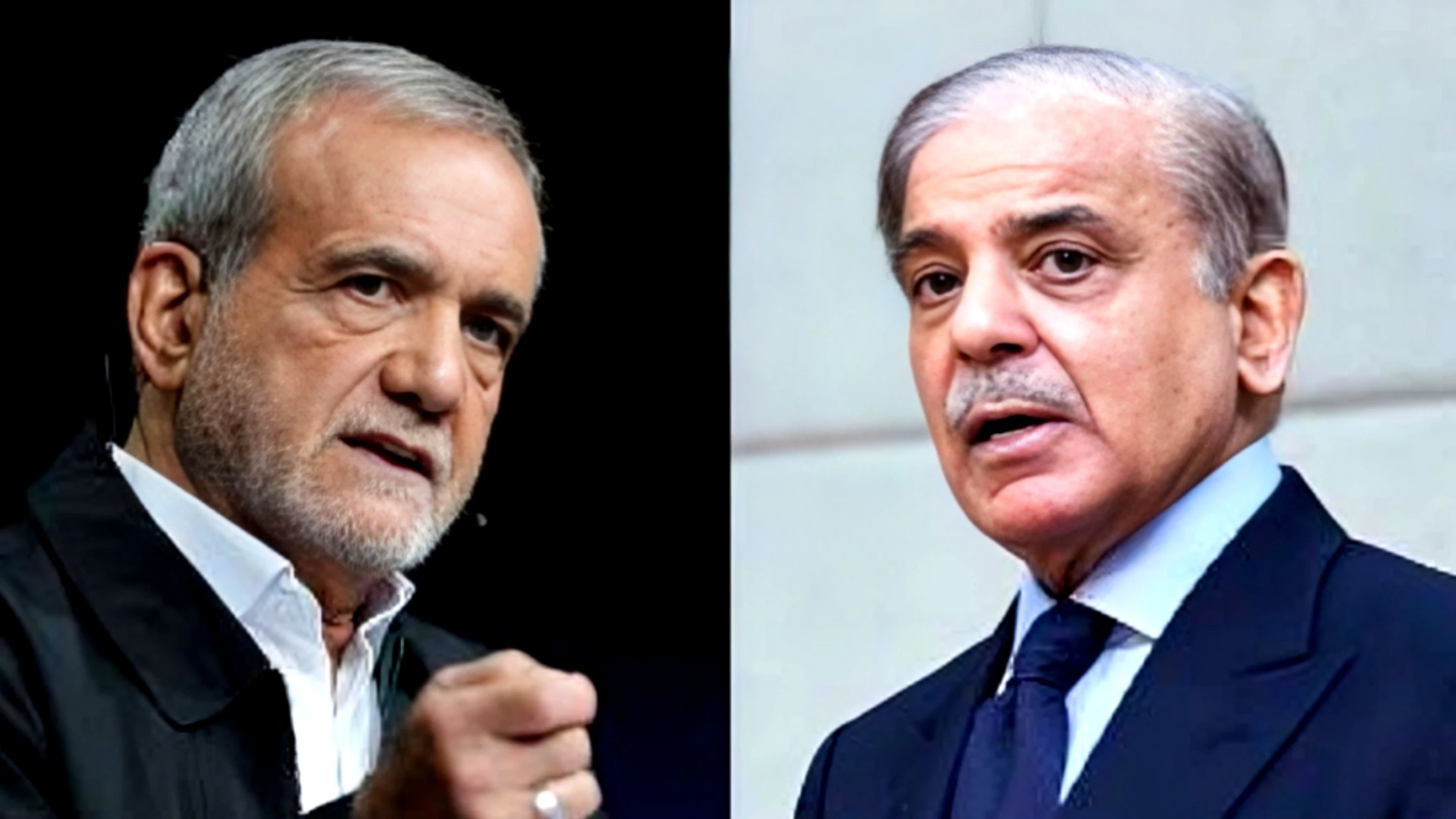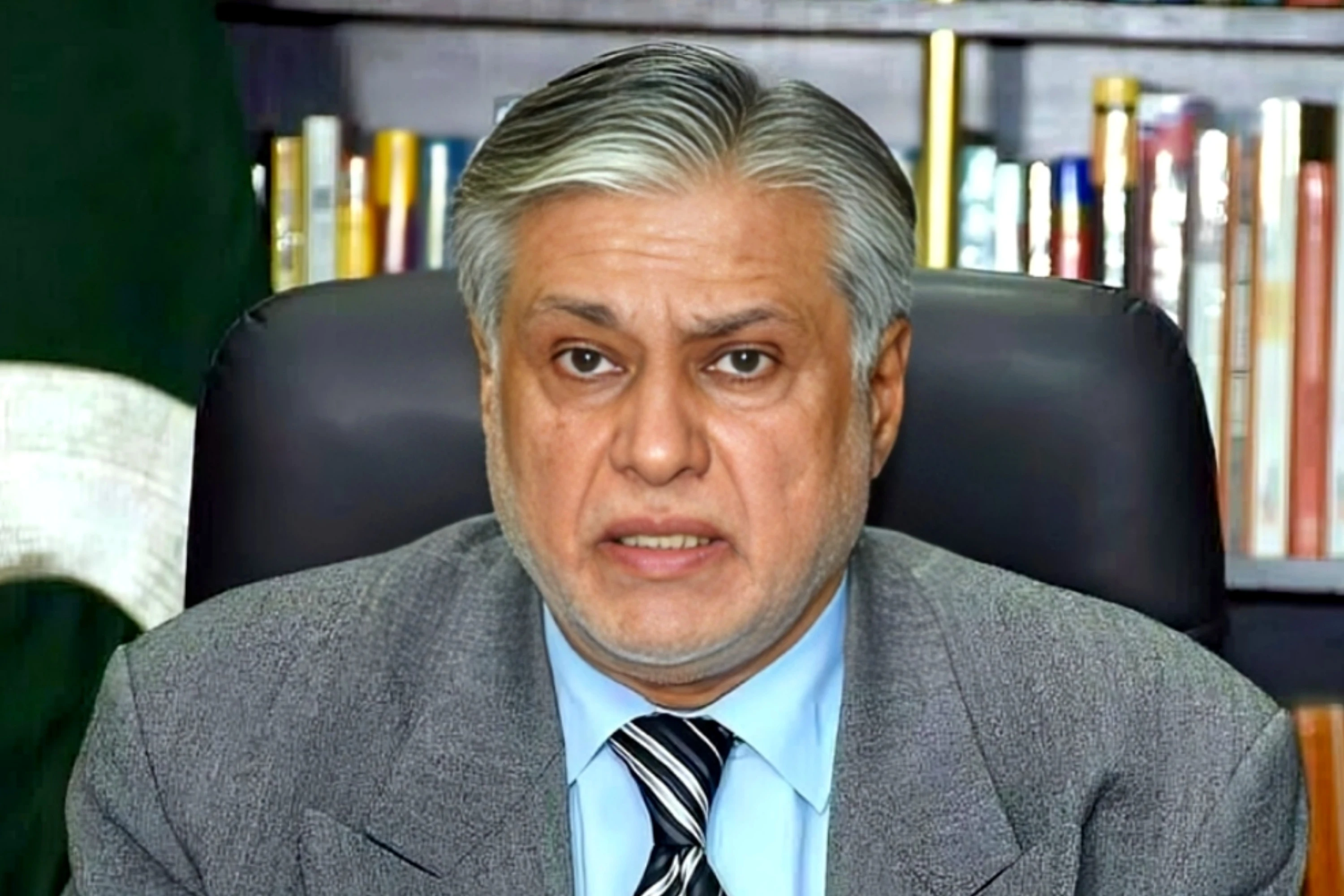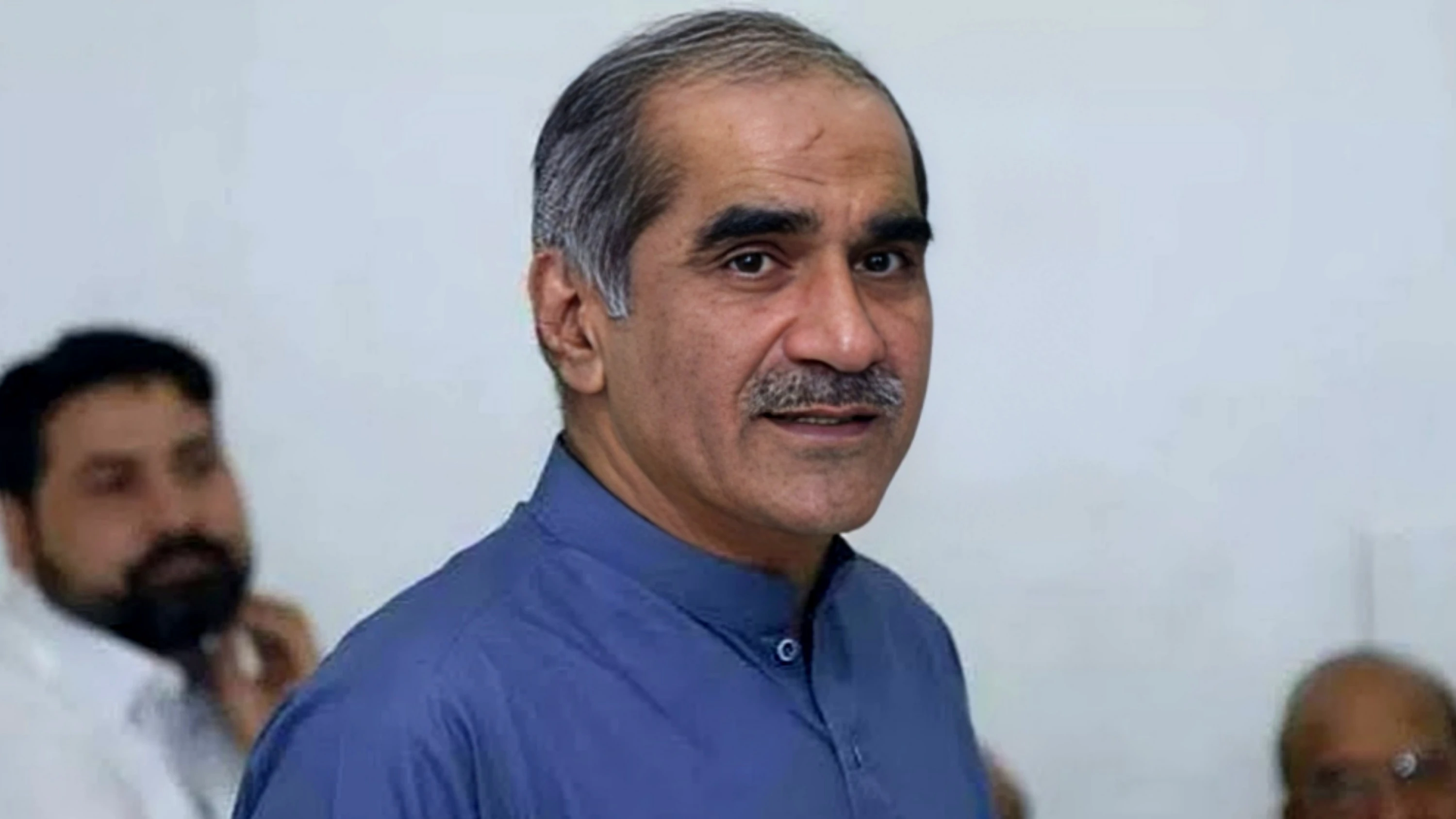Hyderabad: A students protest against the construction of six canals on the Indus River turned violent on Tuesday as police used force to disperse demonstrators.
The protest, organized by the Jeay Sindh Students Federation (JSSF) and factions of the Jeay Sindh Qaumi Mahaz (JSQM), was met with baton charges and tear gas shelling by the Jamshoro police.
Hundreds of students, including female participants, gathered at Sindh University’s Zero Point before marching towards the Indus Highway. As they attempted to proceed, police forces, led by Jamshoro SSP Zafar Siddiqui and Kotri SP Shahnawaz Jokhio, intervened. However, the protesters refused to retreat and reached the Sindhology entrance, where tensions escalated.
In response to police action, students retaliated by pelting stones, resulting in damage to two police vehicles. Reports indicate that several individuals, including both police officers and students, sustained injuries. Authorities detained around 8 to 10 protesters, including Asghar, Nazeer Khoso, Mansoor Buledi, Wazir Leghari, Nasem Memon, Yasir Burfat, and Yousuf Jakhrani.
The confrontation led to a blockade of the Indus Highway, as protesters demanded the immediate release of their detained colleagues. Legal representatives, including members of the Jamshoro District Bar Association, intervened and engaged in discussions with SSP Zafar Siddiqui. Advocate Wajid Khaskheli emphasized that the protest was a peaceful demonstration against the controversial canal project and warned that police aggression could escalate tensions further.
Meanwhile, student leaders asserted that the construction of these canals would threaten Sindh’s water resources and vowed to continue their struggle. High Court Bar Association Hyderabad President Ayaz Tunio also joined the demonstration, condemning the police’s violent response.
Political leaders and nationalist groups strongly criticized the police action. Sindh Taraqqi-pasand Party chairman Dr. Qadir Magsi accused the PPP and PML-N of conspiring to deprive Sindh of its rightful share of water. Leaders from the Awami Tehreek party also denounced the use of force, stating that the Sindh government was trying to suppress the protest through oppressive means.
Sindh United Party president Syed Zain Shah described the police’s actions as an attack on democratic rights, while Jeay Sindh Qaumi Party chairman Nawaz Khan Zaunr called it outright fascism. Protesters vowed to continue their movement, warning that the construction of the canals posed an existential threat to the people of Sindh.
By the time of this report, the Indus Highway remained blocked, with detained students gradually being released and rejoining the protest. The situation in Jamshoro remains tense, with growing opposition to the canal project.


